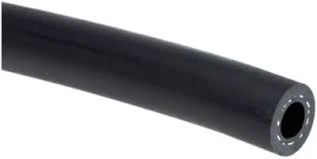injector return hose
Dec . 04, 2024 18:09 Back to list
injector return hose
Understanding Injector Return Hoses Functionality and Importance
Injector return hoses play a crucial role in the fuel injection system of modern automotive engines. Though they may seem like mere components, their functionality and reliability are vital to ensuring optimal engine performance and efficiency. This article delves into the role, significance, and maintenance considerations of injector return hoses.
The Basics of Fuel Injection Systems
In contemporary vehicles, fuel injection systems have largely replaced carburetors due to their ability to deliver fuel more precisely and efficiently. Fuel injectors spray a fine mist of fuel directly into the engine's combustion chamber, allowing for better combustion and power output. However, the fuel system is complex, incorporating several components that work in concert, one of which is the injector return hose.
What is an Injector Return Hose?
The injector return hose connects the fuel injectors to the fuel return line. After delivering fuel to the engine, the system does not use all the fuel sent to the injectors. Some fuel must return to the fuel tank for various reasons, such as ensuring consistent pressure and preventing overheating. The injector return hose facilitates this return of unused fuel, allowing for a balanced and efficient fuel system.
Functionality of Injector Return Hoses
1. Pressure Regulation The return hose helps maintain consistent pressure within the fuel rail, crucial for the accurate operation of the fuel injectors. When fuel is returned to the tank, it helps avoid over-pressurizing the fuel system, which could lead to injector failure or fuel leaks.
2. Temperature Management Engines generate heat, and so does the fuel within the system. The return hose aids in dissipating this heat by allowing a portion of the fuel to circulate back to the tank, where it can cool down. This circulation prevents the fuel from boiling or vaporizing, which can disrupt the injection process.
3. Efficient Fuel Usage By recycling unused fuel, the injector return hose contributes to overall fuel efficiency. This design helps minimize waste and ensures that the engine operates smoothly without unnecessary fuel consumption.
injector return hose

Importance of Maintaining Injector Return Hoses
Like all components of a vehicle, injector return hoses require regular inspection and maintenance to ensure their functionality. Here are several reasons why maintaining these hoses is essential
1. Preventing Fuel Leaks Over time, hoses can degrade, develop cracks, or become brittle, leading to fuel leaks. A compromised return hose can affect the entire fuel system, resulting in reduced engine performance or even fire hazards in severe cases.
2. Ensuring Proper Fuel Flow Blockages or restrictions in the return hose can lead to increased pressure in the fuel rail, which may cause fuel injectors to malfunction. Regular checks can help identify issues before they develop into more significant problems.
3. Minimizing Wear and Tear Routine inspections can help catch wear and tear from environmental factors or friction. If hoses show signs of excessive wear, replacing them promptly can ensure the efficiency of the fuel system.
Signs of a Failing Injector Return Hose
Automotive enthusiasts and everyday drivers alike should be aware of the signs that indicate a failing injector return hose. Common symptoms include
- Fuel Odor A noticeable smell of gasoline emanating from the engine compartment may suggest a leak in the return hose. - Engine Performance Issues If the engine struggles to start or runs erratically, it could indicate pressure problems related to the injector return system. - Check Engine Light Modern vehicles are equipped with diagnostic systems. If anything amiss is detected, the check engine light may illuminate, prompting a further investigation into the fuel system.
Conclusion
Injector return hoses may not be the most glamorous parts of an automotive fuel system, but their importance cannot be overstated. They play vital roles in ensuring fuel efficiency, managing pressure, and maintaining overall engine performance. Regular maintenance and early recognition of potential problems can lead to longer-lasting engine health and reliability. As car enthusiasts and conscientious drivers, understanding and caring for these essential components will help keep vehicles running smoothly and safely on the road.
